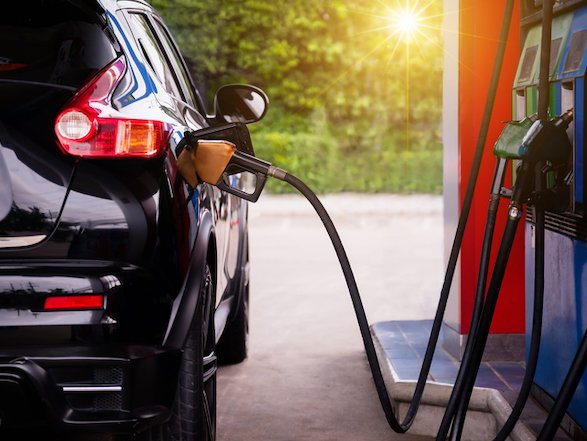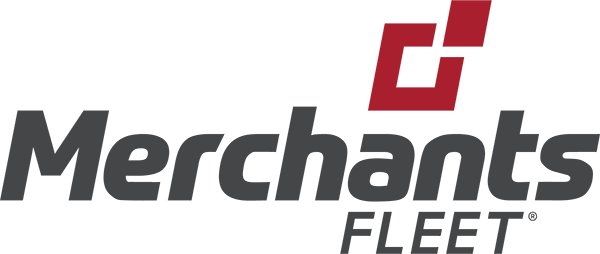How to Select the Best Fleet Fuel Card Service for Your Business

Fuel is one of the largest expenses for many businesses and organizations, which is why proper fleet fuel management is essential to reduce costs, keep your drivers safe, and streamline operational efficiency. One of the easiest, most effective ways to ensure proper fleet fuel management is through a fuel card.
Fleet fuel cards come in many shapes and sizes, and there are options for every fleet. Whether you are a local plumber with a handful of vans or a national business with thousands of vehicles, fleet gas cards offer a powerful way to control your expenses, reduce fraud, and have better visibility into fuel costs. Below, we dive into how you can find the best fleet fuel card for your business.
How Fuel Cards Work
Fleet fuel cards are designed for making payments at gas stations (and sometimes maintenance locations) exclusively. They collect detailed fuel purchase data that businesses can use to closely monitor fuel purchases and usage, plus they offer customized controls to help with security and fraud prevention.
For example, depending on the card you choose, you can:
- Limit Purchases to At-Pump Only
- Require Driver ID Entry So You Know Who is Buying Fuel
- Set Alerts if Someone is Purchasing More Fuel Than Can Fit in the Vehicle
What Are the Differences Between Fuel Cards and Credit Cards?
The core difference between fuel cards and credit cards is control. Fuel cards are usually based on major credit card platforms, but their functionality is limited to certain purchases by product type such as fuel, car washes, and/or in-store gas station purchases.
Regular business credit cards are open to more purchase types and do not limit exposure as much as fuel cards do. Fuel cards can also be set up to capture detailed transaction data like odometer and driver ID information, so you know who is making fuel purchases and how much mileage you are getting per tank. In contrast, think back to your last credit card statement. If you bought gas, you probably got the name of the station on your statement, dollar amount, and nothing else.
6 Fleet Fuel Card Features to Consider
When comparing fleet fuel card options, here are some important features to consider.
1. Security
Fuel cards can be set up so that drivers must enter their unique ID for every transaction, ensuring that unauthorized users cannot use the card. Companies can also set purchase limits and set up alerts for when attempts are made that are over the limit, or unusual odometer readings are entered. Make sure any fuel card you choose acts only like a credit card, not a debit — this will provide less access and more recourse in the event a card is lost or stolen.
2. Accounting
Many fleet fuel cards offer an online platform where users can log in and see detailed purchasing data. Having this information in a central, online location helps cut time spent on accounting administration by reducing or eliminating the need for hard-copy fuel receipts. Look for the ability to set exception reporting, which tracks what your company sets as “unusual” behaviors.
For example, you can set a maximum threshold for the number of fuel purchases per day or the amount, and generate a report indicating who has hit that threshold. Access to this type of reporting is a powerful way to proactively identify and reduce fraud. Similarly, requiring odometer reading entries at the pump helps keep an accurate log of how much fuel your vehicles are using on average.
3. Customer Service
Having the right customer service is key to keeping vehicles on the road. When a driver runs into fuel card issues, they are spending less time on the road servicing clients. Check that the fuel card has a driver support line so if a driver is at the pump and forgets their ID or their card is getting declined, they can call a number and get the support they need to complete a fuel purchase.
4. Fuel Data
A dedicated fuel card opens the door to more detailed fuel data. Today, major brand-name fueling stations and those in metro areas offer what is called “level 3 data,” which means they capture price per gallon, the location, driver ID, and odometer readings for each transaction, offering a detailed picture of the fuel purchases being made.
Having this deep level of data offers more opportunities to analyze your fuel spend and identify opportunities to optimize. It is possible to limit fuel card transactions to level 3 stations, but consider where your drivers operate. Not every station in operation is a level 3 station, so if drivers are more likely to be in rural areas with family-owned stations that may not offer detailed data, it is often worth opening your cards to all station levels for driver convenience.
5. Mobile Account Access
In addition to seeing if a fuel card comes with an app or other method for mobile access, ask about whether exception alerts can be delivered in real-time to your mobile device. If you can receive alerts about over-tank purchases and other exceptions via text, you can stay informed while you are on the go.
6. Controls
One of the biggest reasons companies opt for a fleet fuel card over a general-purpose card is the ability to set detailed controls. The level of controls you need will help dictate which card you choose.
For example, do you want drivers to make at-pump purchases only, or do you need a card that allows in-store purchases as well? If a card limits purchases to certain locations, are those locations easily accessible for your drivers? Do you have a fleet with different types of vehicles with different fuel capacities, which would require different purchasing profiles? Does the fleet fuel card allow you to override purchasing limits or profiles in real-time in the case of an emergency (this is especially useful for utility companies or other businesses that operate in disaster recovery)?
Which Type of Fuel Card is Best: Branded, Fleet, Universal, or Wholesale Cardlock?
In general, fuel cards can be broken into four types:
- Branded Cards Issued by Specific Fuel Companies
Oil companies such as Chevron, ExxonMobil, Shell, Sunoco, and BP all offer specific cards that typically include fuel rebates, detailed reporting, and purchase controls. These cards are primarily intended to be used at the issuing company’s locations, though depending on the terms and conditions, they may offer limited acceptance at other affiliated stations depending on the terms and conditions. - Fleet Cards Designed for Commercial Vehicle Use
This type of fuel card has a bit more flexibility since it is typically not limited to a specific station. You still have the ability to limit purchase controls and access detailed reporting, and many fleet cards offer rebates or discounts on fuel purchases. - Universal Cards
A universal card works just like a credit card and offers the most amount of flexibility, since it is accepted at a wide range of fueling stations and maintenance locations. Additional features include customized reporting, purchase controls, real-time monitoring, advanced security features, and online account management. - Wholesale Cardlock Fuel Cards
Cardlock fueling stations are designed mainly for commercial fleets and businesses as opposed to everyday consumers. They are often unmanned, and access is limited to authorized users who have a specific cardlock fuel card. Issued by fuel providers and linked to a business’s account, these cards allow drivers to refuel without using cash or other credit cards.
One is not necessarily better than the other — it truly depends on what makes the most sense for your business. Here is an overview of what each of these card types offers, their drawbacks, and the types of businesses they typically serve.
| Branded Cards | Fleet Cards | Universal Cards | Wholesale Cardlock Fuel Cards | |
| Pros |
|
|
|
|
| Cons |
|
|
|
|
| Examples |
|
|
|
|
| Best For |
|
|
|
What Locations/Regions Does Your Fuel Card Cover?
Branded cards are typically limited to that specific brand of fuel station. While some companies may offer locations nationally, other fuel providers are more regionalized.
Fleet and universal cards often offer nationwide coverage and are accepted at a wide variety of fuel stations. For example, if a fleet or universal card is based on a major credit card network, it would be accepted anywhere that credit card is accepted (within the parameters that you have set according to your policy).
Wholesale cardlock fuel cards are only accepted at specific cardlock networks.
Fees
Fees are an important part of the equation when selecting your fleet fuel card. In general, branded fuel cards tend to have few or even no set-up and account fees, and may even offer introductory APR specials, while universal cards or fleet cards often have set up, monthly card, and/or account fees. Wholesale cardlock fuel cards may also have service fees and card replacement costs.
In some cases, fees are waived if your company reaches a certain purchasing threshold. When selecting a card, make sure to ask the card provider about how your purchasing power and credit score impact your fee schedule. Some companies may also charge fees for certain reports or paper invoicing.
When researching your card options, ask the provider about their fee policies and what does and does not apply to your specific situation.
Key Features to Consider
Not every fuel card provides the same type of features and benefits. For example, some may offer specific incentives for new clients or a rewards program to help promote customer loyalty. Here are some important features to look out for when shopping around:
- Discounted Fuel
- Rebates
- Cash Back Rewards
- Loyalty Programs
- Discounted Vehicle Maintenance
- 24/7 Roadside Assistance
- 24/7 Customer Support
- Fraud Monitoring and Alerts
- Customizable Dashboard
- Exclusive Discounts
- Custom Reporting
- Ability to Integrate With Most Business Accounting Software
Popular Fleet Fuel Cards
- WEX: WEX provides two options — the WEX Fleet Card and the WEX Fleet FlexCard. The Fleet FlexCard provides a rebate of up to 3 cents per gallon for six months, in addition to no setup, annual, or card fees.
- Mastercard Corporate Fleet Card: This card can help control spending by allowing you to set limits and track spending patterns that include grade of fuel, fueling frequency, time of fueling, and the location of the fueling station.
- Fuelman Diesel Fleet Card: You have the ability to choose from three different cards — Enterprise, Pro, and Basic — depending on your budget and needs. The Enterprise plan includes business protection, rewards, and the most reporting and account management features.
- Shell Fleet Plus Card: Shell’s fleet fuel card does not have any card fees and is accepted at nearly 13,000 Shell stations and participating Jiffy Lube locations. Users can save up to 6 cents per gallon based on the number of gallons purchased in a billing cycle.
What Are the Best Fleet Fuel Cards for Small Business?
In general, the best fleet fuel cards for small businesses are branded and fleet cards. If you are a sole-proprietor or your small business only uses one or two vehicles, and if fuel monitoring is not a priority, it may be sufficient to apply for a business credit card instead. There are business credit cards that offer basic fraud protection and cash back rewards, such as the Bank of America® Business Advantage Cash Rewards Mastercard®, and more purchase type flexibility than a fuel card.
How to Choose the Right Fuel Card
If you’re considering a fuel card but aren’t sure where to begin, we suggest following these steps:
- Evaluate your fleet. Before you select a fuel card, you need to understand exactly how your fleet operates. This includes the type of fuel, how many gallons your vehicles typically consume within a certain period of time, and where your fleet travels.
- Do your research, and compare card features. As you explore your options, consider everything from fees and management structure to security, reporting, and incentives/rebates. Look into several cards so that you can compare them side by side in order to make the most informed decision for your fleet.
- Read reviews. Every fuel card’s website will tell you all the positives, but what do card holders and users have to say? In order to get the complete picture, read online reviews and talk to your network connections or others in the industry.
- Research each card’s customer service support. Most cards offer some type of 24/7 support, but it’s important to confirm the specific details before signing.
- Consider how the card will integrate with your system. Make sure the fleet fuel card will integrate seamlessly with any type of existing fleet management software.
- Take the card for a test drive — if you’re able. Some companies may allow a trial run so that you can test out the card before a full commitment. It also allows you to obtain valuable feedback from your drivers.
- Review contract terms, and read the fine print before signing. Thoroughly review the contract terms and conditions to ensure there are no hidden fees or unfavorable provisions. Also, make sure you understand the card’s cancellation policy.
Struggling to Decide on a Fleet Fuel Card? We Are Here to Help.
Getting a handle on your fuel spend starts with having the best fleet fuel card for your specific business needs. As you can see, there are a lot of options available with many factors to weigh. If you need help determining which fleet fuel card is right for you, contact our fuel experts.
Frequently Asked Questions
Can my fuel card be used at charging stations?
Where can you use fuel cards?
Do fuel cards save you money?
Is Your Fleet Optimized for Savings?
Use our fleet savings calculator to see if you’re overspending.





